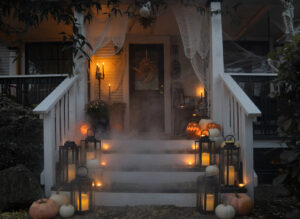 The Spring, 2018 issue of The Construction Lawyer, a Journal of the American Bar Association’s Forum on Construction Law, reports that the Maryland Court of Special Appeals has ruled that a home builder remains liable to second owners of a home for building code violations by a subcontractor which result in personal injuries to the second owner of a home.
The Spring, 2018 issue of The Construction Lawyer, a Journal of the American Bar Association’s Forum on Construction Law, reports that the Maryland Court of Special Appeals has ruled that a home builder remains liable to second owners of a home for building code violations by a subcontractor which result in personal injuries to the second owner of a home.
The case is Marrick Homes LLC v. Rutkowski, 161 A. 3d 53 (Md. 2017). In brief, Marrick completed construction of a home in 2005. In building the home, Marrick contracted with another company to perform certain trim work on the home, including the construction and installation of guardrails. The home was constructed with a sliding glass door in the kitchen to allow access to a potential future deck. Because of the slope of the lot, the kitchen’s sliding door was approximately 12 – 13’ above the ground. The home did not have a deck at the time it was constructed, so a safety guardrail was installed on the exterior of the house outside of the sliding glass door.
After living in the house for seven years, the original owners sold the home to Rutkowski in 2012. Later that year, Rutkowski opened the sliding door and leaned over the guardrail which gave way causing him to fall onto a concrete pad below. He suffered multiple injuries including traumatic brain injury as a result of the fall. It was later determined that the guardrail had been attached using finish nails, a violation of the building code.
In its defense, Marrick argued that it owed no duty to Rutkowski to ensure the proper construction of the safety guardrail because that duty had been delegated to the trim work subcontractor. Rutkowski responded that the duty to comply with the building code was non-delegable by Marrick. The court found that the duty imposed by the building code was binding on the prime contractor (the home builder) and could not be delegated down to the subcontractor. Marrick, as the general contractor responsible for the construction of the home, bore the statutory duty to provide specified safeguards or precautions. “Marrick, therefore, is subject to liability to the [homeowner] for harm caused by the failure of its employee, [the trim subcontractor], to provide such safeguards.”
The court also rejected Marrick’s request to dismiss the case because Rutkowski purchased a seven year old home from its original owner and not from Marrick. In rejecting this argument, the court relied upon Maryland’s 10-year statute of repose for construction defect claims and held that the suit was brought within the period permitted by statute. The fact that Rutkowski did not purchase the home from Marrick had no bearing on Marrick’s liability within the statute of repose.
While Marrick is a negligence case and not a breach of warranty case, its outcome is an important one, as it impacts risk-shifting provisions in the owner/contractor/subcontractor relationship and makes clear that a home builder remains ultimately responsible for the quality of its subcontractor’s work, particularly where code violations create safety risks.

Homeowners
Boost Your Brand and Bottom Line: Builder Benefits of Outsourcing Customer Care
Managing warranty claims, coordinating repairs, and addressing homeowner concerns can quickly overwhelm a builder’s customer care team. The process takes time, money, and focus away



